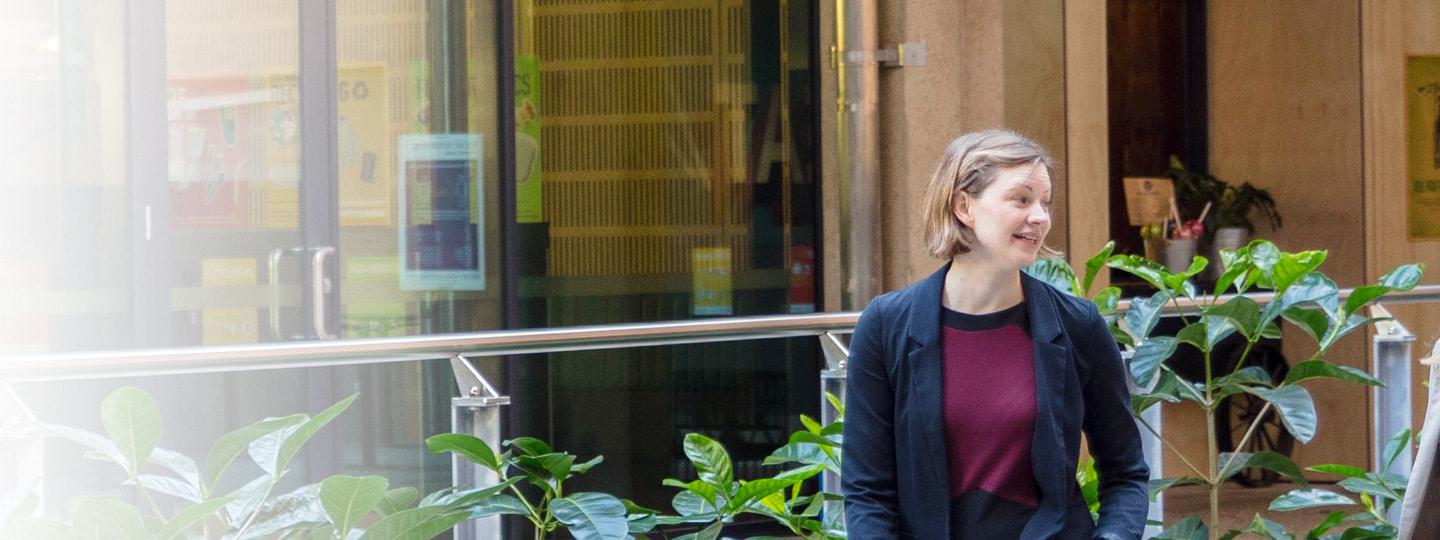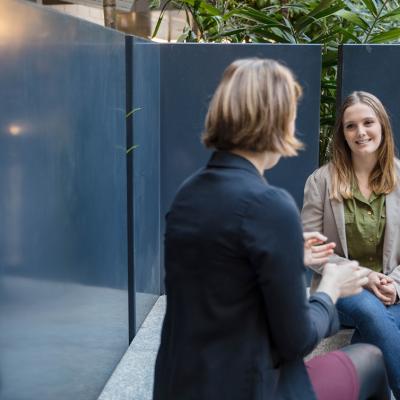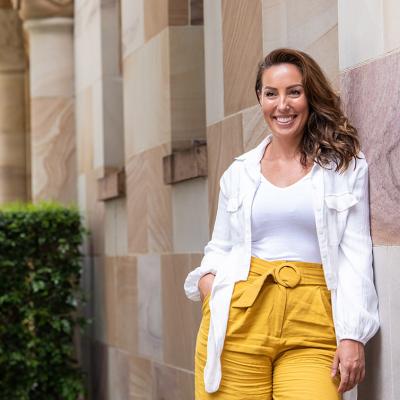Ever wondered what it's like to do a sociology PhD at UQ? Choosing the right pathway can be hard, especially when there are so many unknowns out there.
How do you choose one of the many possible PhD research topics in sociology? How do you find the right supervisor? How do you pitch your sociology PhD topic?
PhD candidate Emma and her supervisor Dr Sally Staton have teamed up to answer some of your questions to help you decide what’s right for you.
Why did you choose to do a sociology PhD?
Emma: I enjoyed my honours year. But the thing about an honours year is it's quite rushed, so you only really have about 9 months to create your project and then write up your thesis. I had a few things that I wanted to explore in more depth, and the PhD is useful because you have that time to really explore your topic.
What's your favourite thing about being a PhD supervisor?
Sally: I think it's learning about the students and their personalities. Every student comes in with a really different set of skills and life experiences; they don’t all come in the same way and they have different ways that they look at the world. It's really nice to learn with them and go through that journey of understanding what they bring and what I can help bring out.
I have students who think really big; they have big ideas and then you have to bring them down to thinking about all the detail in between. And then other students are so detail orientated and you have to encourage them to think big and own big ideas and be okay with that, so I kind of love that process.
How is your PhD different to your undergraduate studies?
Emma: For the PhD, it’s a lot more independent and you get to have a lot of control over what you want to explore. Something else that's nice is you get to have that relationship with your supervisory team, and it's nice because you have the support around you to explore what you're really interested in.
"Also, with the support of a scholarship, you can kind of treat it like a job working 9 to 5, Monday to Friday, so you can really focus on the topic that you love."
How did you make the progression from a Bachelor of Creative Industries (Dance) to a PhD in psychology/sociology? What sparked a passion for research?
Sally: I have absolutely no idea how I got here. If you had asked me at the beginning of my university studies, when I was studying a degree in dance, I would not have thought I would end up doing a sociology PhD and then becoming a researcher in developmental psychology. That was not the plan.
But I guess as part of my studies I got really interested initially in psychology, so I went from dance to psychology first – I have a degree in psychology also. Then through that I was really interested in research and how research can inform some of the world around us and the decisions we make, particularly around small children.
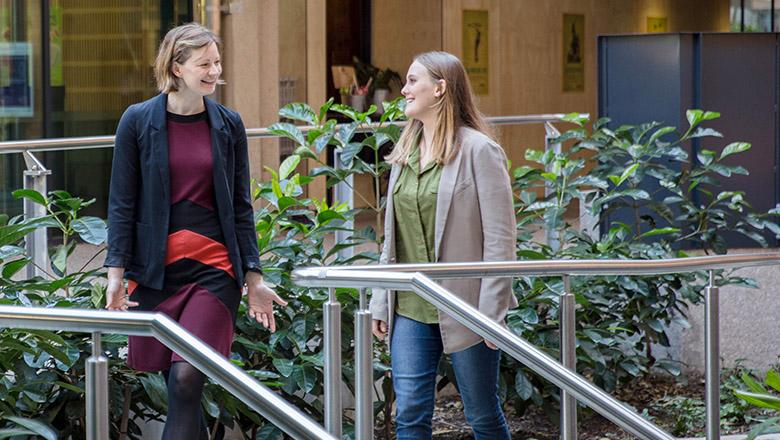
Emma Cooke discusses potential sociology PhD topics with her supervisor, Dr Sally Staton.
Do you ever draw upon the skills from your first degree in your PhD?
Sally: I actually think I do. Possibly not my dance skills, but certainly the creativity part of it. I do actually think it's part of research. We often think of research as something we do just in a lab and it's very sort of sterile and rigorous. And whilst there is an element of that, a big part of research is that creative spark of asking unique questions and coming up with new ideas, and there's a certain level of creativity required for that, so I don't think it's irrelevant.
What scholarship have you been awarded and how did you find out about it?
Emma: I'm on the research training program scholarship, the RTP, and I found out about it when I applied for the PhD. It's pretty straightforward and it's very helpful to have that support, because that's really what helps you to just focus on your PhD. Even though I do a bit of research assistant work and that's fun, you have to keep that to a minimum because there's always a million shiny distractions. You’re there to do your PhD and that scholarship allows you to really focus on it.
Find out more about PhD scholarships, fellowships and funding.
Who do you think should do a PhD?
Sally: I think anyone who is really interested in a topic or has a burning question that they want to answer or contribute to our understanding of – that's really what it comes down to. It's a big commitment. You commit for 3 years or longer to do a PhD.
"What you need to bring with it is a genuine interest in what you're doing, and then beyond that your supervisors really step in and can help you with all the other skills you need to make that work."
How did you come up with your PhD research topic in sociology?
Emma: It was really just by chance when I started my honours. My honours supervisor at the time told me that she had a project coming up about childcare flexibility. She asked if I'd be interested and I was reading about childcare flexibility and I could see why it’s really important, but the policy analysis wasn't really my passion.
Then I saw one of the project aims was to understand children's perspectives and that really fascinated me, because in my undergraduate degree in sociology, we didn't focus on children's perspectives. That was really exciting for me because I had this whole new literature I was really interested in exploring. Honours was my taste of that body of research and then I got to really explore that more in my PhD.
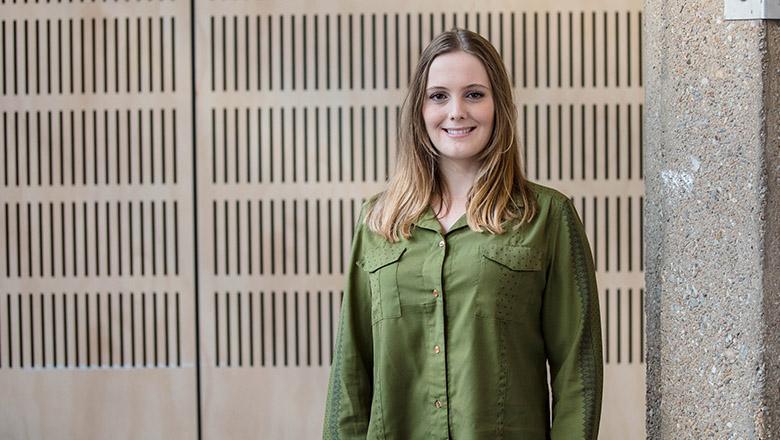
For Emma, the sociology of early childhood was an obvious choice for her PhD topic.
What made you decide to be Emma's supervisor?
Sally: Emma came to me actually. What resonated for me is that when Emma came in, she was deeply interested and had this idea of what she wanted to do. And I think when people have that passion, you can tell straight away because the way they talk about it is animated, and that was a very easy decision from my perspective. To have someone come to you and articulate what they're interested in, in a way that shows that they're really dedicated and committed to that, made it very easy to say yes.
Emma: I was working as a research assistant for Sally before she became my PhD supervisor.
Sally: I had a little insider knowledge of Emma's skills, which is always helpful.
Emma: That's probably good advice for prospective PhD students. If you’ve finished your honours and you just want to explore a bit of your research topic or suss out who could be a good supervisor, sometimes doing some research assistant work in areas that you're interested in can be a great way to get that foot in the door and take it from there.
Sally: Yeah, and it certainly helps from our end because then we get to know you, know what your skills are and where we can help you.
Discover what makes a good PhD supervisor.
Your research interests include child wellbeing and sociology of children. How did you find a supervisor with aligned interests?
Emma: I found Karen through the Institute for Social Science Researchers newsletter that announced that Professor Karen Thorpe and her team, including Dr. Sally Staton, were moving across to UQ. So I think it's important to read those newsletters. I got the newsletter because I had connections with a friend from honours who forwarded it to me, so that's another example of maintaining those connections; they’re really helpful because people will share resources with you. That was a link to early childhood research, and to complement the team, we also have a sociologist to bring in that sociological perspective.
Sally: And challenge our thinking because we don't always understand sociology very well, but we're learning a lot.
Emma: I think it's good for me, though, because I'm always thinking about how to explain where I'm coming from. I think it's kind of nice if your supervisor might have a slightly different discipline of expertise, then that's actually good because it always keeps you on your toes. I always have to be thinking about how to explain what I'm doing and why I'm doing it, we're not just accepting that 'oh we're just going to do research in this particular way because that's how it's always been done'. We're always critically evaluating it, and I think that's when the really exciting research ideas come to fruition.
Sally: It's nice for us too because we get opportunities to learn new things that we're not usually exposed to.
Was your undergraduate degree in social science or did your passion to study a PhD in sociology come from somewhere else?
Emma: My undergraduate degree was in sociology, but that was through a Bachelor of Arts. The way the Bachelor of Arts is designed is quite broad, so I got to try a whole bunch of different subjects my first year, and I only discovered sociology in my second semester.
I was really interested in sociology and now my PhD is in the sociology of early childhood. That interest in early childhood all came not from my studies – I did a lot of volunteering with children throughout my undergraduate degree, and a PhD has been useful because I've been able to bring those two interests of early childhood and sociology together.
Your research career begins here at UQ. Explore our scholarships or apply now.

